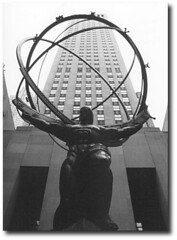Great article by James Taranto: "How 'Integration' Became Discrimination"
"The New York Times reports on an important case the Supreme Court heard yesterday:
By the time the Supreme Court finished hearing arguments on Monday on the student-assignment plans that two urban school systems use to maintain racial integration, the only question was how far the court would go in ruling such plans unconstitutional.
There seemed little prospect that either the Louisville, Ky., or Seattle plans would survive the hostile scrutiny of the court's new majority. In each system, students are offered a choice of schools but can be denied admission based on their race if enrolling at a particular school would upset the racial balance.
At its most profound, the debate among the justices was over whether measures designed to maintain or achieve integration should be subjected to the same harsh scrutiny to which Brown v. Board of Education subjected the regime of official segregation. In the view of the conservative majority, the answer was yes.
But liberal justices disagreed:
Justice Ruth Bader Ginsburg tried unsuccessfully to turn the chief justice's colloquy with [Seattle lawyer Michael] Madden in a different direction. The question of whether "using racial integration is the same as segregation," she said, was "pretty far from the kind of headlines that attended the Brown decision."
Bringing "white and black children together on the same school bench," Justice Ginsburg continued, "seems to be worlds apart from saying we'll separate them."
The fundamental dispute is whether antidiscrimination laws--the 14th Amendment and, by implication, the Civil Rights Act of 1964--ban discrimination altogether, or only in the pursuit of invidious ends. Broadly stated, the "conservative" position is that these laws protect individuals from discrimination, whereas the "liberal" position is that discrimination is fine in the pursuit of "diversity" or integration but not of white supremacy.
Liberals, in other words, are much more apt to say that the ends justify the means. As Justice Harry Blackmun wrote in University of California v. Bakke, "In order to get beyond racism, we must first take account of race. . . . And in order to treat some persons equally, we must treat them differently."
That was in 1978. Twenty-five years later, Justice Sandra Day O'Connor, in Grutter v. Bollinger, upheld some racial discrimination in higher education, but wrote that she expects the need for them to have passed in another 25 years. Justice Ginsburg made a point of disagreeing, saying that one may only "hope" that it will be "safe to sunset affirmative action."
There is a curious disconnect here. "Affirmative action" is politically unpopular, having been banned by initiative in three liberal states (California, Michigan and Washington). With Justice Samuel Alito having replaced O'Connor, its legal status is shaky.
In any case, it has always been presented as only a temporary measure--a way, as Justice Blackmun put it, "to get beyond racism." Yet affirmative action's advocates act as if it is here to stay. For them, discrimination is no longer a means to an end but an end in itself. The Seattle Public Schools Web site has a statement on its Web site that expressly disavows the goal of getting beyond racism:
The intended purpose of our work in the area of race and social justice is to bring communities together through open dialogue and honest reflection around what is meant by racism and the impact is has on our society, and more specifically, our students. Our intention is not to put up additional barriers or develop an "us against them" mindset; nor is it to continue to hold onto unsuccessful concepts such as a melting pot or colorblind mentality.
As George Will notes, this statement replaced one that was much worse:
Until June, the school district's Web site declared that "cultural racism'' includes "emphasizing individualism as opposed to a more collective ideology,'' "having a future time orientation'' (planning ahead) and "defining one form of English as standard.'' The site also asserted that only whites can be racists, and disparaged assimilation as the "giving up'' of one's culture.
This is in fact baldly racist. In concept it is distinguishable from white supremacy only in its refusal to condone value judgments. But the real world imposes its own "value judgments," and in practice it seems obviously pernicious to inculcate black children with the idea that because of the color of their skin, they cannot learn to plan ahead or to speak standard English.
Advocates of affirmative action, thus, have abandoned the goal of "getting beyond racism," upon which it was originally imposed on the public. Affirmative action has become a way of perpetuating discrimination rather than overcoming it. It is, at best, an experiment that has failed."
